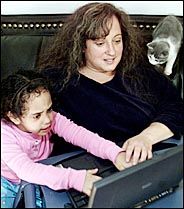----------------------------------------
the school of the dead
Cixous writes: "The dead man's death gives us the essential primitive experience, access to the other world, which is not without warning or noise but which is without the loss of our birthplace. So it gives us everything, it gives us the end of the world; to be human we need to experience the end of the world. We need to lose the world, to lose a world, and to discover that there is more than one world, and that the world isn't what we think it is. Without that, we know nothing about the mortality and immortality we carry. We don't know we're alive as long as we haven't encountered death. These are banalities that have been erased. And it is an act of grace."
------------------------------------------
A bad gallbladder. The doctors tell my mother, my mother tells the three of us. I'm five now. Not knowing what part of the body hides the gallblader, I know it must be somewhere in the middle--because I see him doubled over from the spasms, I watch from behind the couch as he climbs the stairs after dinner to lie perfectly still, bearing the rhythm of pain. No one seems worried. I take my cue from them. The doctors are ready to take this gallbladder out, and my father will be able to eat sauce on his pasta again, not butter. He'll be able to sit through dinner. He'll feel like playing his bass again. The dark circles, the sullen look, the whites of his eyes growing bigger, his stare more distant--these are things doctors can fix with gallbladders, I believe. But I don't forget the red brick building.
December 29, 2001
December 27, 2001
I'm four years old, in the back seat of our oversized station wagon. It's 1967 and all the station wagons are big enough to swallow a child whole. Without a seatbelt, riding is more like rolling, swimming around in cool blue cushioned seats.
This day, I'm more carsick than usual. Windows rolled tight against the upstate New York cold, the smell of hair spray and cigarette smoke, mixed with whisps of black coffee, make every breath uncomfortable, and I teeter on the verge of gagging and vomiting most of the way there.
When we pull up to the red brick building, my sickness turns quickly to fear. I'm overwhelmed with panic and the primal urge to flee. Danger. I know we're in terrible danger. And without the words to express it, I do what four year olds do. I wail. Hysterical, high pitched screams fill the car. "Don't go in there! You won't come out! P-L-E-A-S-E, Daddy, don't go in there! Mommy, he won't come home! He won't! He Won't!"
Husband and wife locked in a glance I remember to this day, they slowly turn to me, there on my back-seat ocean of blue cushions, and give words of comfort that shroud their dismay.
"It's just an appointment honey. Don't get so upset. He'll be back in 15 minutes. Calm down, honey, calm down."
My mother climbs in the back seat with tissues for me, and together we watch my father, 35 years old, pull his collar up against the wind and walk briskly toward the building.
As he walked he was dying.
But we didn't know that.
I did.
It was my first day in "The School of the Dead."
------------------------------------------
Ahhh. Blogger's back up. This is good.
Can't blog much right now--I'm having a sort of epiphany, and it's never good to blog in the middle of one of those; you can ruin it--much better afterward. The epiphany is coming to me courtesy of a book I'm engaged in:

I won't give away much, but consider that blogging is writing. And consider today that you are dying as you blog.










